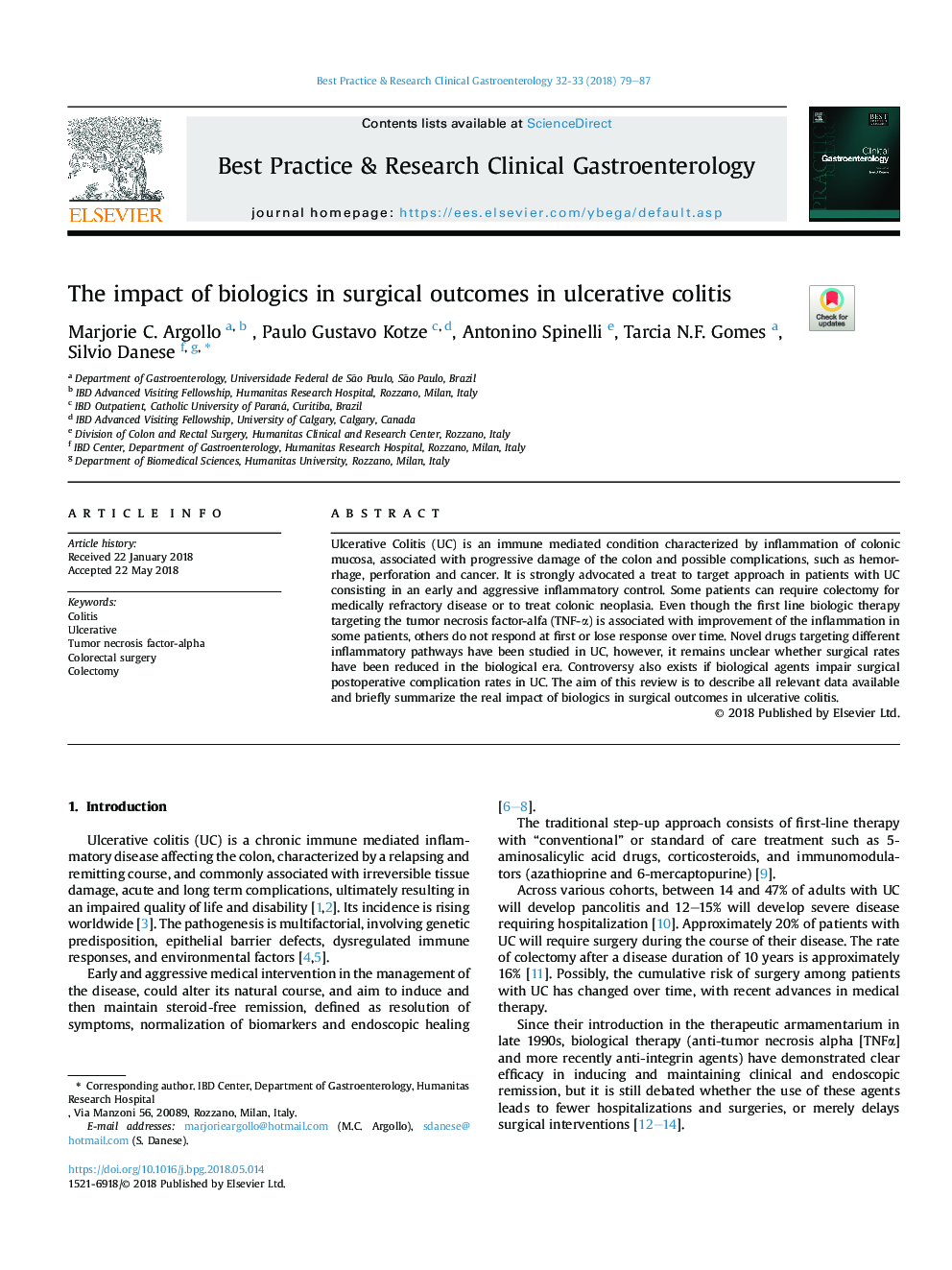| Article ID | Journal | Published Year | Pages | File Type |
|---|---|---|---|---|
| 8720629 | Best Practice & Research Clinical Gastroenterology | 2018 | 9 Pages |
Abstract
Ulcerative Colitis (UC) is an immune mediated condition characterized by inflammation of colonic mucosa, associated with progressive damage of the colon and possible complications, such as hemorrhage, perforation and cancer. It is strongly advocated a treat to target approach in patients with UC consisting in an early and aggressive inflammatory control. Some patients can require colectomy for medically refractory disease or to treat colonic neoplasia. Even though the first line biologic therapy targeting the tumor necrosis factor-alfa (TNF-α) is associated with improvement of the inflammation in some patients, others do not respond at first or lose response over time. Novel drugs targeting different inflammatory pathways have been studied in UC, however, it remains unclear whether surgical rates have been reduced in the biological era. Controversy also exists if biological agents impair surgical postoperative complication rates in UC. The aim of this review is to describe all relevant data available and briefly summarize the real impact of biologics in surgical outcomes in ulcerative colitis.
Related Topics
Health Sciences
Medicine and Dentistry
Endocrinology, Diabetes and Metabolism
Authors
Marjorie C. Argollo, Paulo Gustavo Kotze, Antonino Spinelli, Tarcia N.F. Gomes, Silvio Danese,
